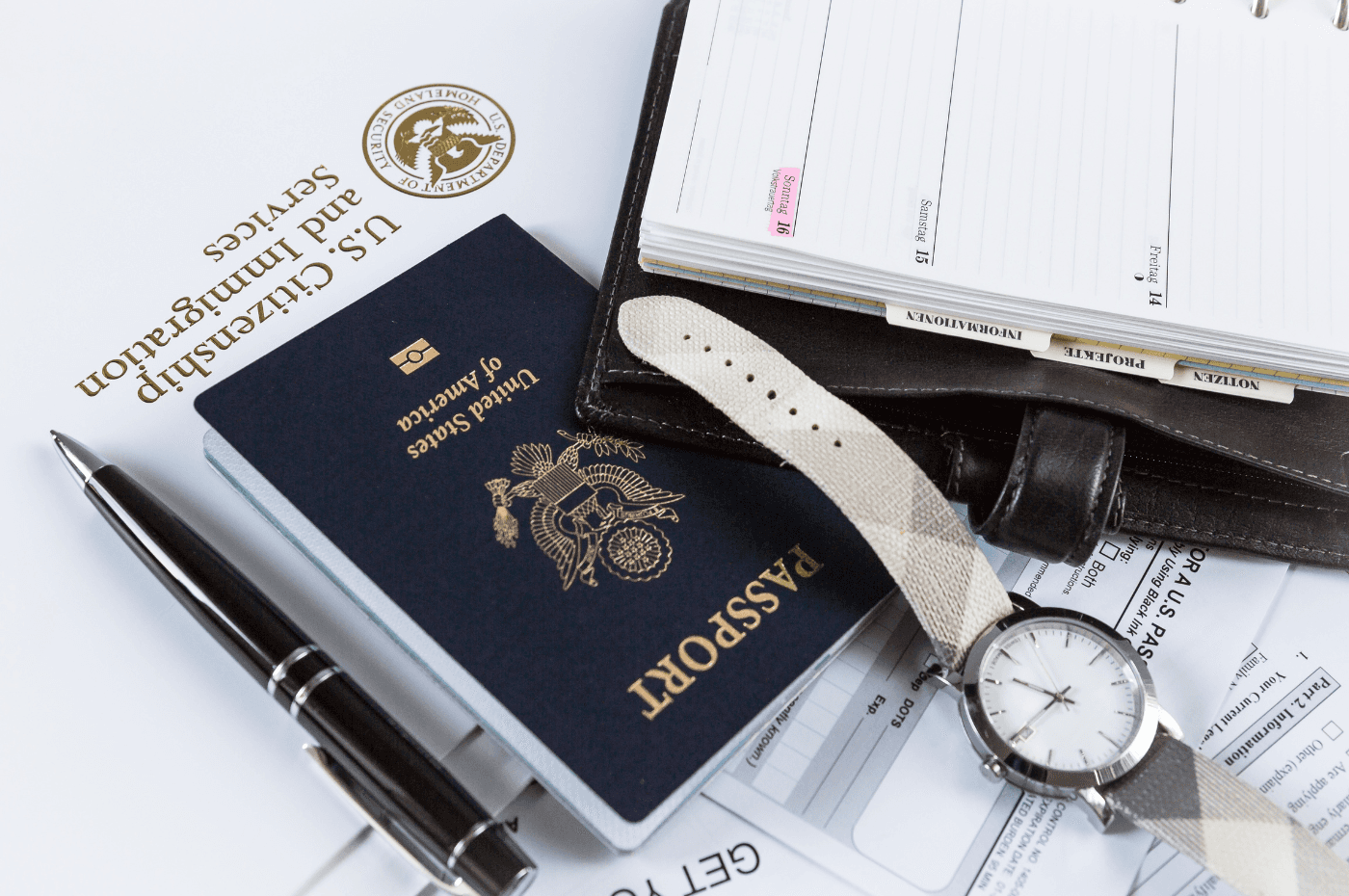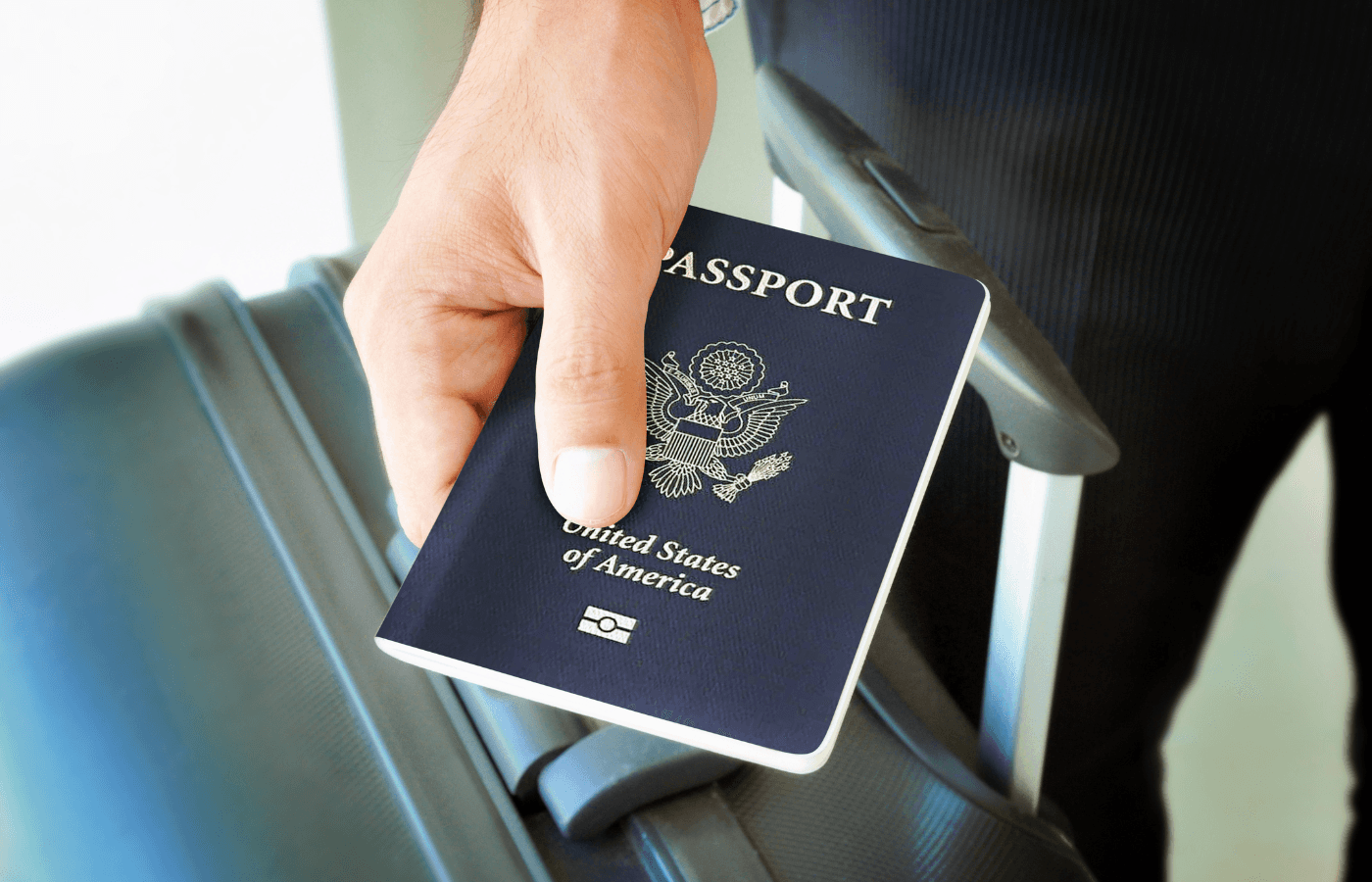An international move can open the door to a whole new life — but first, you have to deal with the paperwork. Whether you're retiring abroad, starting a new job, relocating with your family, or managing some combination of these, you'll need to stay on top of dozens of critical documents.
Here’s what to expect and how to stay organized.
Key Takeaways
You will need a passport with a validity of at least six months and a visa to move abroad.
The visa application generally requires proof of identity, citizenship, financial stability, and a background check, and may require a language proficiency test.
Countries easier for Americans to move to include Canada, Mexico, Panama, Spain, Costa Rica, and Germany.
General Requirements for Moving Abroad
The requirements for moving abroad will depend on the destination, but there are some general guidelines to be aware of.
Proof of Identity and Citizenship
You will need proof of identity and citizenship regardless of where you plan to move. The most common form of identification is a valid passport. Most countries require a six-month validity period at the time of the visa application. You won't be allowed into another country with an expired passport.
To apply for a passport, you must visit your nearest passport acceptance facility, which could be at a post office or library. You cannot apply for a first-time passport online or by mail; you must apply in person. To apply for a passport, you will need:
Form DS-11.
Original proof of citizenship (birth certificate).
Photo ID.
Passport photo.
Passport fee, which starts at $130 for adults applying for a passport book.
Processing usually takes six to eight weeks, while expedited passports can take up to three weeks.
You may also need additional forms of identification, such as your Social Security number. You can request a replacement Social Security card through the Social Security Administration, either online or by visiting a local SSA office.
Proof of Financial Stability
Accepted proof of income includes:
Bank statements.
Documents showing remote work income, such as pay stubs, savings statements, or pension records
If someone else is financially sponsoring your move, they may need to provide a letter explaining their relationship to you and confirming their commitment to cover your expenses.
Background Checks
Countries like Canada, Australia, and the United Kingdom require a criminal background check for visa applications. You can request a background check by submitting your fingerprints to the FBI or through an FBI-approved channeler.
Background checks don’t technically expire, but many countries require that they be issued within the past six months as part of a visa application. Be sure to time your application accordingly.
Language Proficiency
Some countries require you to demonstrate language skills for certain types of visas or residency permits. This could involve taking a government-approved language test.
Remember to factor in the time it takes to study and complete the test during your visa application process.
Employment or Education Documentation
How are you planning on supporting yourself and your family abroad? You must prove your employment status through job offer letters or work contracts. If you’re applying for a work visa, you must provide copies of your degree certificates and academic transcripts.
Travel Documentation

Your travel documents must be kept safe, as you won’t get very far without them.
Passport and Visa
If your passport has expired or will expire soon, you must renew it. Some eligible adults can renew online, but most renewals are done by mail, and fees start at $130.
International Vaccination Certificates
You must present vaccination certificates that comply with visa entry, depending on where you're moving. Some common required international vaccinations include:
Yellow fever.
Chickenpox.
MMR (measles, mumps and rubella).
Hepatitis A and B.
You can visit the Centers for Disease Control and Prevention's destination pages to determine your necessary vaccinations.
With so many critical documents to track, it’s easy to feel overwhelmed. Trustworthy's Family Operating System® can help. As a secure digital vault, it keeps your essential documents organized, accessible, and protected, whether you're still preparing for your move or already living abroad.
Residency and Legal Documentation
Your residency and legal documents, like work permits, are crucial for long-term stays in a new country. These documents allow you to rent or purchase property, provide access to public services, make travel easy, and are a stepping stone to citizenship.
Streamline your interactions with local authorities and store your documents with Trustworthy, which allows you to access them with the swipe of a finger.
Financial Documents
Banking Information
For your visa, you'll need bank statements and proof of funds. To transfer money abroad, open an account with a bank offering international services. This requires proof of identity, address, income, and possibly immigration documents, depending on the bank’s requirements.
Tax Documentation
Some countries will require proof of tax compliance from your home country via a tax compliance report called IRS Letter 6201.
You should also understand your tax obligations as a U.S. citizen living abroad, including requirements to report foreign bank accounts and income to the IRS. You can stay ahead of tax deadlines by keeping your documents organized and readily available with Trustworthy.
8 Countries That Are Easier for Americans to Move To
Take some of the stress out of moving abroad by choosing a country easier for Americans to move to.
Portugal: "Portugal is one of the best choices for Americans looking to relocate," says Dean Rotchin, the CEO of Blackjet, which organizes travel for wealthy individuals. "The country actively encourages expatriates through its D7 visa program, which has low income requirements and an easy transition thanks to a large American community and widespread English use."
Canada: The proximity and easy requirements for work permits, family sponsorship, and express entry make this move easier.
Mexico: Offers a straightforward temporary and permanent residency process with a large expat community of English speakers. "For many, Mexico is a natural choice," Rotchin explains. "It offers a much lower cost of living while keeping you close to family."
Costa Rica: The Pensionado program allows retirees to settle easily with an income of $1,000. Foreign income is also not taxed. "Costa Rica provides a high quality of life at a fraction of U.S. costs," says Rotchin.
New Zealand: It's especially an option to skilled workers and those who can make a significant financial investment.
Germany: The Blue Card program fast-tracks residency for skilled professionals. The job-seeker visa allows qualified professionals to look for employment for six months while in the country.
Spain: Spain’s Non-Lucrative Visa allows self-funded individuals to live or retire in the country, provided they meet minimum income requirements. As of 2025, applicants must show an annual income of at least 28,800 euros (around $31,000 ), with an additional 7,200 euros (about $7,700) required for each family member. This visa is popular among retirees and remote workers who can support themselves without local employment. According to Statista, around 41,000 Americans currently live in Spain.
Georgia: "Georgia’s Remote Worker Program lets Americans stay for up to a year without complicated visa requirements," Rotchin points out. "It’s also incredibly affordable, which is why more digital nomads and entrepreneurs are making the move."
Health and Insurance Documents
Health Insurance
Health and travel insurance is important in emergencies and prevents delays in getting assistance. You can get proof of your insurance coverage by requesting copies from your insurance provider. Keep these policies on hand by storing digital backups on your Trustworthy account.
Popular international health and travel insurance providers include AIG Travel Guard®, Travelex, GeoBlue, and Cigna Global.
Medical Records
If you or a family member suffers from a chronic condition, keeping copies of key medical records, prescriptions, and vaccination records is crucial. You can help prevent delays in treatment by having that information immediately available through Trustworthy's mobile app (iOS and Android).
You can request copies of your medical records from your primary care provider.
Personal Identification and Family Documents
Birth Certificates and Marriage Certificates
Certain scenarios will require copies of birth and marriage certificates, like a spousal visa, enrolling your child in school, and accessing child-related services. These documents can also be used for tax purposes, such as opening bank accounts and registering for local services.
Children’s Records
Your children’s records will be used for medical and educational reasons, such as enrolling in school. These records will include:
School transcripts.
Vaccination records.
Relevant medical records.
Guardianship documents in the event of shared custody.
Housing and Utilities
Countries may have different requirements for purchasing or renting property, but generally, you will be required to provide the following:
Lease or property ownership papers: Some landlords or government agencies might require copies of property ownership documents and lease agreements to purchase or rent property.
Proof of address: You’ll first need to set up an account with local authorities to pay your monthly utilities. During registration, you may need to provide proof of address.
Driver’s license requirements: Having a U.S. driver’s license doesn’t automatically allow you to drive in other countries. You may need to apply for an international driving permit or convert your license to meet local requirements, depending on your destination. Research the laws in advance to avoid delays or fines once you arrive.
Vehicle records: If you're bringing your car with you, you’ll need to carry the vehicle’s title and registration documents. Additional paperwork may be required to import the vehicle or register it locally, depending on your destination country.
Emergency preparedness: Organizing your critical documents is only part of being prepared to move to another country. The other part is being prepared for any kind of emergency.
Emergency contacts: Create a list of emergency contacts with full names, key phone numbers, and addresses. Ensure all family members know where and how to access this list during an emergency. Trustworthy's digital vault includes a section for listing contacts you may need on short notice.
Copies of documents: Avoid the stress of losing critical documents abroad by storing secure copies with Trustworthy. Access key documents and emergency contacts anytime, anywhere.
Why Trustworthy Is the Smart Choice for Moving Abroad

Trustworthy is your No. 1 solution to organizing documents when moving to another country.
Autopilot takes all the hassle out of family organization. Autopilot instantly analyzes every document you upload and extracts key details and provides filing recommendations and file names.
Trustworthy’s smart search makes finding documents instant, reducing stress in emergencies. You can easily share travel, medical, or financial files with trusted collaborators, including family and financial advisors. Trustworthy's SecureLinks™ let you securely share documents outside your network while maintaining control with time-limited access.
Automated reminders help you track travel documents and deadlines, alerting you when to renew passports, visas, and insurance. In addition to keeping you organized, Trustworthy protects your information with bank-level security, including AES 256-bit encryption, multi-factor authentication, biometric authentication, physical security keys, and tokenization.
Try Trustworthy free — with no time limit — to see how the Family Operating System® can work for you.
Frequently Asked Questions
How far in advance should I prepare for an international move?
Gather your travel documents at least six months in advance, especially if you’re applying for or renewing passports, getting background checks, or completing a language test.
What tax obligations might I face after moving abroad?
You must file U.S. taxes regardless of living abroad and may have to pay local taxes.
What financial planning should I do before my move?
First, you should notify your bank of your intentions, open an international bank account, and start an emergency fund in the country you plan to move to.
We’d love to hear from you! Feel free to email us with any questions, comments, or suggestions for future article topics.
Trustworthy is an online service providing legal forms and information. We are not a law firm and do not provide legal advice.














